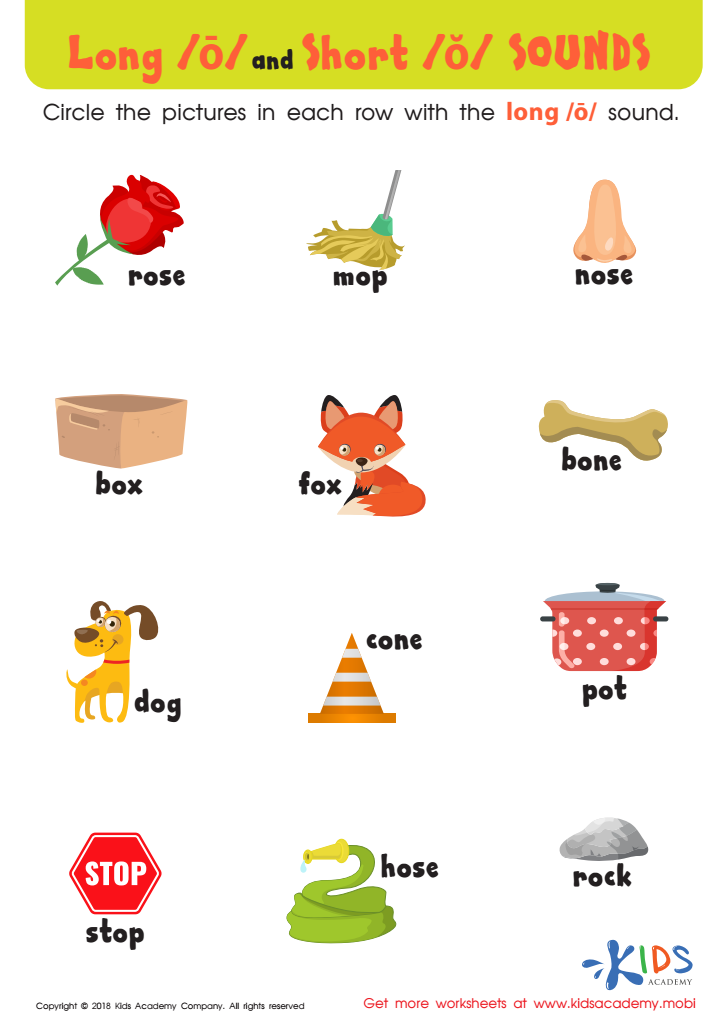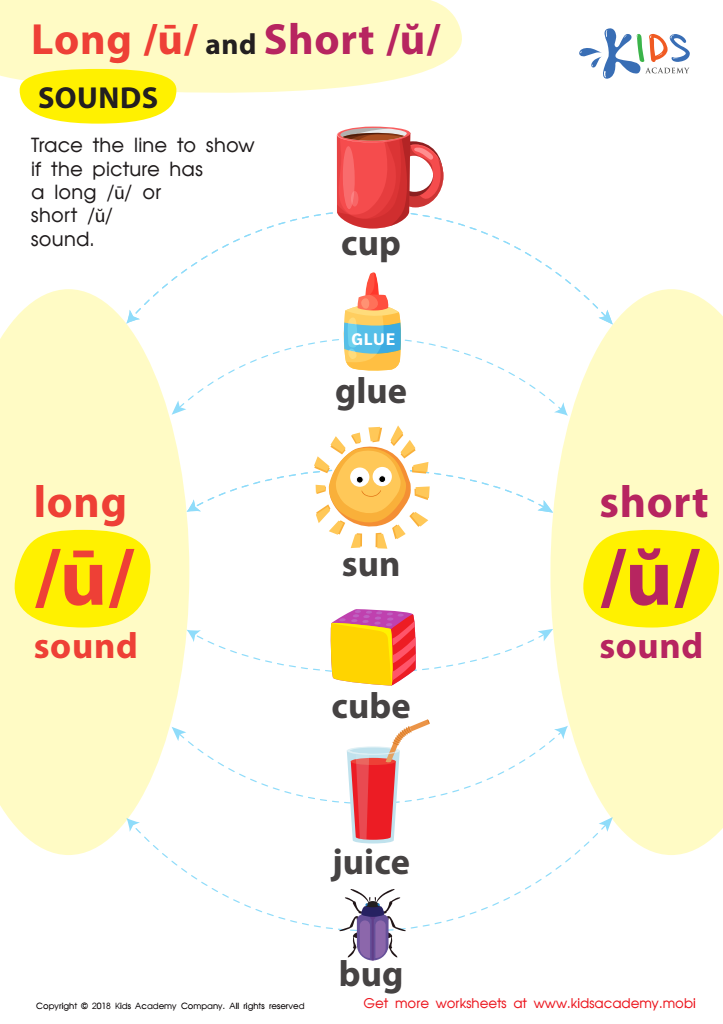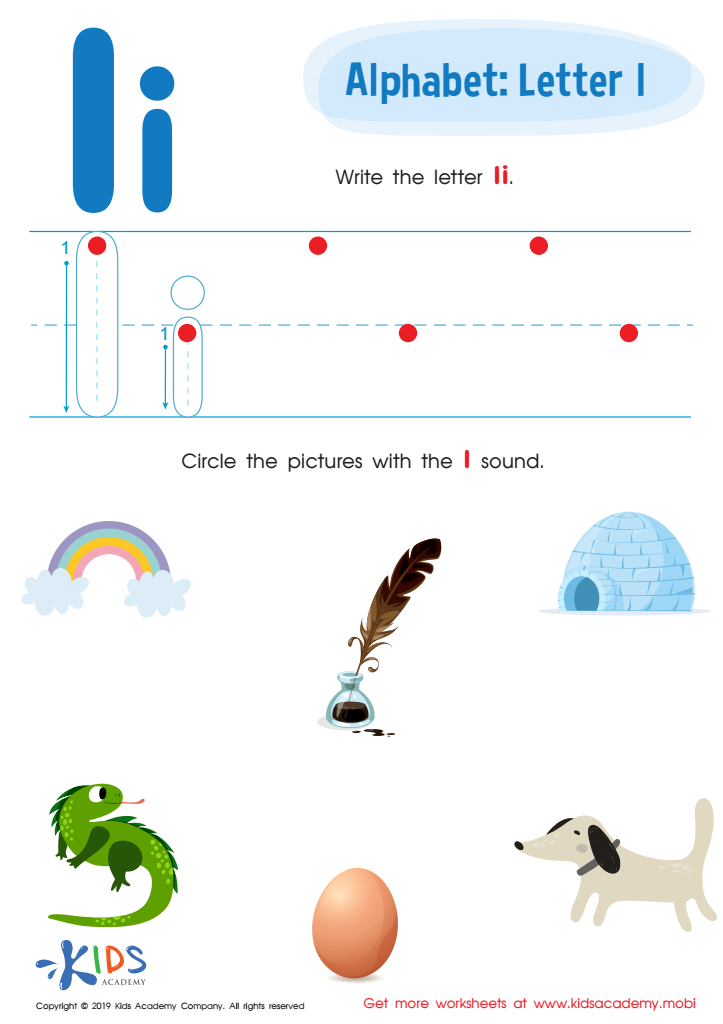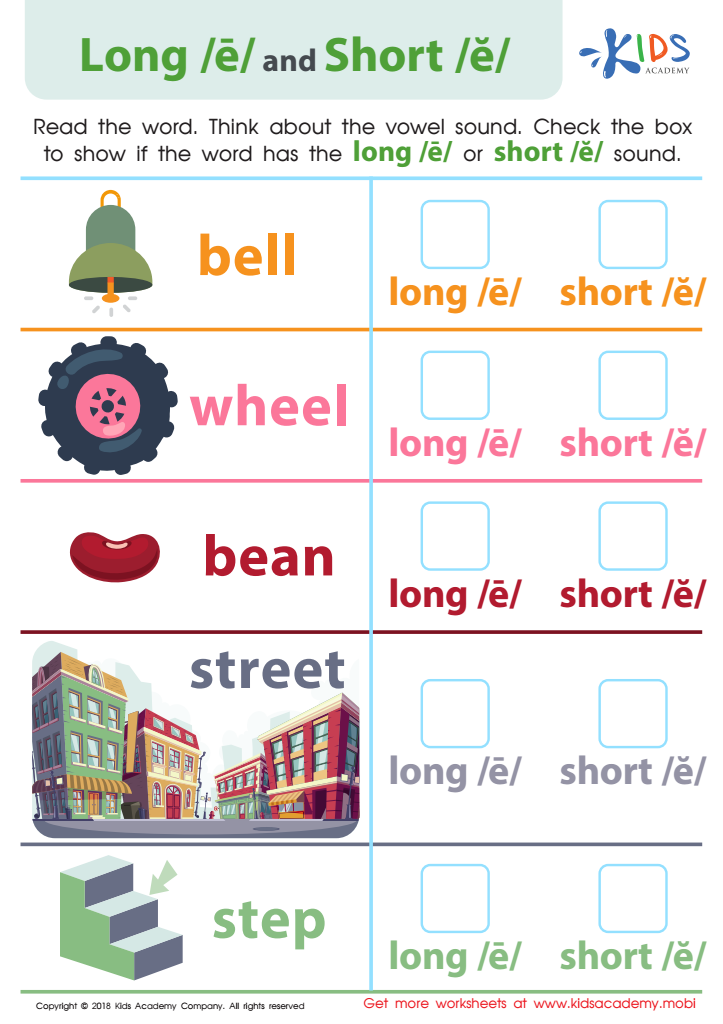Phonics Skills Letter Recognition Worksheets for Ages 8-9
4 filtered results
-
From - To
Enhance your child's phonics skills with our Letter Recognition Worksheets designed specifically for ages 8-9. These engaging worksheets provide a fun and interactive way to reinforce essential reading and writing fundamentals. Focusing on letter identification and sounds, they help boost confidence and proficiency in literacy. Each worksheet includes varied activities, ensuring children stay motivated while mastering their phonics skills. Perfect for home or classroom use, these resources cater to different learning styles, encouraging creativity and critical thinking. Help your child build a strong foundation in reading by exploring a wide range of exercises that make learning enjoyable and effective!


Reading: Long O and Short O Sounds Worksheet


Reading: Long U and Short U Sounds Worksheet


Letter I Tracing Worksheet


Reading: Long E and Short E Worksheet
Phonics skills, specifically letter recognition, are foundational elements of reading development for children aged 8-9. At this age, students are transitioning from learning to read to reading to learn. If they struggle with letter recognition, it can hinder their fluency and comprehension, affecting their overall academic performance and self-confidence.
Recognizing letters and understanding their sounds supports word decoding, allowing children to tackle increasingly complex texts. Phonics skills also help improve spelling and writing, essential areas that contribute to a child's full literacy development. Without strong phonetic skills, children may encounter difficulties in all subjects, including math and science, where reading comprehension is vital.
Effective phonics instruction helps children build essential skills for expressing thoughts cohesively, leading to better communication abilities. Moreover, fostering these skills at a young age instills a love for reading by promoting successful interactions with texts.
For parents and teachers, being attentive to a child's phonics skill development means they can provide targeted support and interventions as needed. This proactive approach ensures that all students possess the critical skills required for academic independence and lifelong learning. Ultimately, developing strong phonics skills paves the way for a more successful and confident student.

 Assign to My Students
Assign to My Students



















